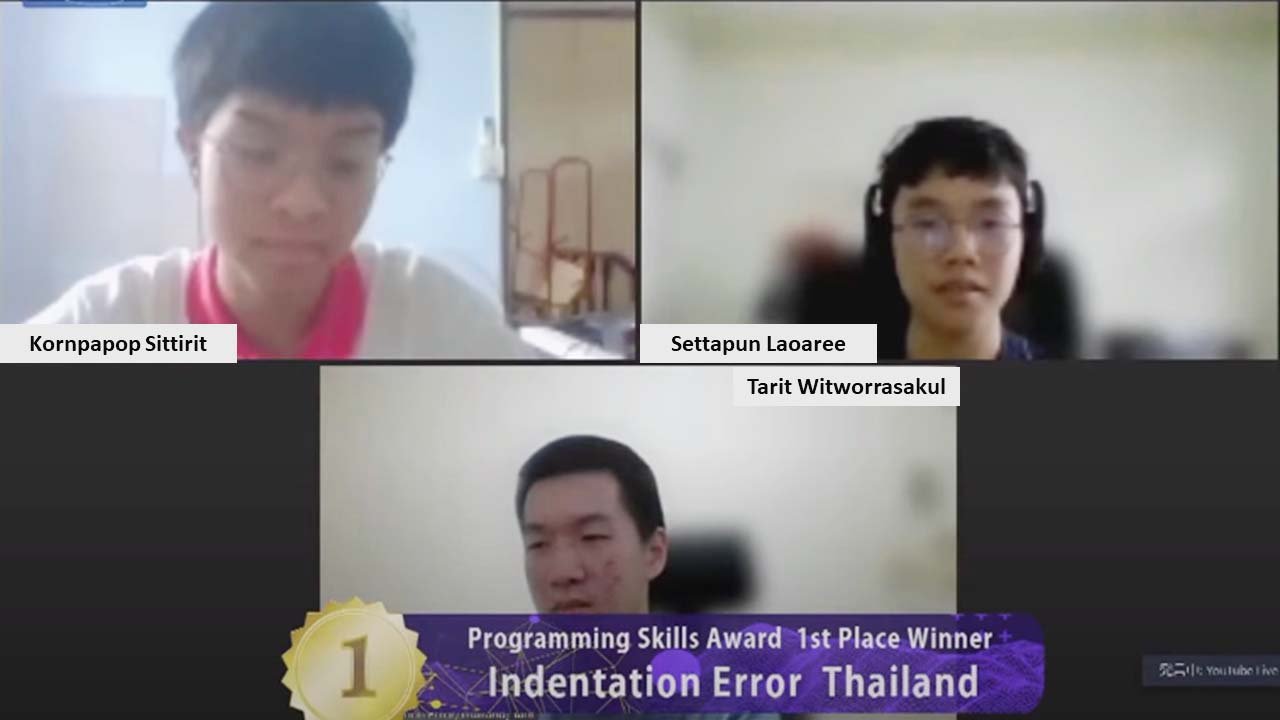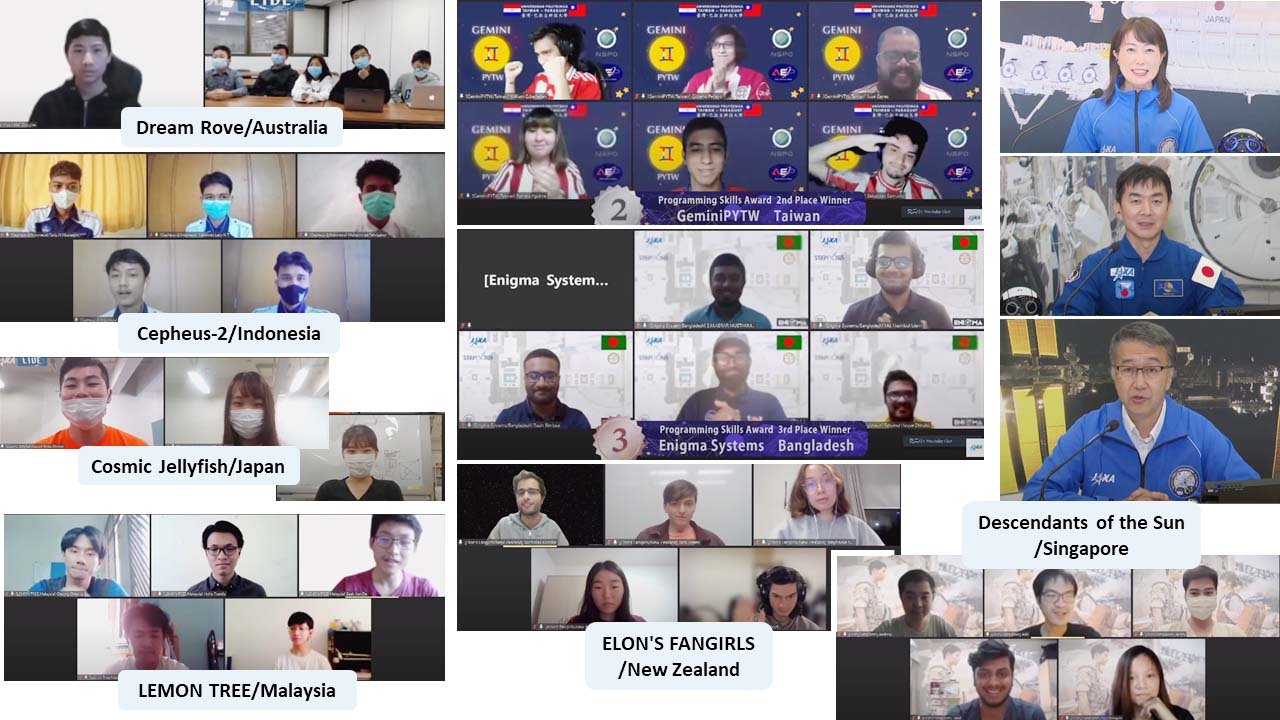On Sunday, July 18, 2021, the Programming Skills Round (PSR) of the 2nd Kibo Robot Programming Competition (Kibo-RPC) was held. Teams that won the preliminary round in each of the nine Asia-Pacific countries and regions were able to participate in the PSR.
Each participating team competed for the Programming Skills Award, which was won by the Thai team “Indentation Error”. These teams will participate in the on-orbit finals to be held in September.

This year’s competition, the second of its kind, attracted 286 teams and 905 participants from 11 countries and regions. Preliminary rounds were held in each country/region, and the winning team was able to participate in the PSR. This PSR is a competition to determine the best team in programming technology using a simulation environment, and nine elite teams that won the qualifying rounds in each country/region participated in the battle (see Table 1 for the list of participating teams).
The PSR (see Table 3 for the program of the day’s events) began with greetings from the master of ceremonies astronaut Naoko Yamazaki, and commentators Professor Shinichi Nakasuka of the University of Tokyo and JAXA astronaut Kimiya Yui. This was followed by team introductions by each team’s leader and an explanation of the Kibo-RPC rules. Afterwards, the teams were shown a replay of the simulation results with explanations by Professor Nakasuka and Astronaut Yui, and then the rankings and awards were announced. Many of the teams created extremely accurate and stable programs and produced Class A. The competition was so close that it was difficult to tell from the simulation result video alone which team had won the top prize.
At the awards ceremony, the top three teams were announced. Awarded third place was “Enigma Systems” from Bangladesh, in second place was “GeminiPYTW” from Taiwan, and first place went to “Indentation Error” from Thailand (see Table 2).
In the general comments at the end of the session, the variability of the scores of the eight simulations was presented, and the winning program, “Indentation Error” from Thailand, was shown to be very stable. The top teams all boasted stable scores.
After the PSR, an online social event was held with the participating students. The participants asked various questions to Astronauts Yui and Yamazaki. There was also a live exchange of questions and answers among the students, as well as questions from Professor Nakasuka to the participating students.
In the on-orbit finals to be held in September, the programs of all teams that participated in the PSR will be loaded onto the actual Astrobee on the ISS, and the competition will be held in a real environment. Participating teams will modify their programs for the final round. The winner of the on-orbit final will be determined by which program can best adjust to the characteristics of the actual machine and the differences in the environment from the simulator. It will be interesting to see the differences compared to the PSR results.
The on-orbit final is expected to be a very interesting and heated competition. We look forward to having you come and watch!

Table 1: List of teams participating in PSR
※ Unfortunately, some countries were unable to participate in the PSR due to COVID-19.
